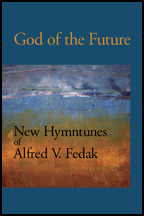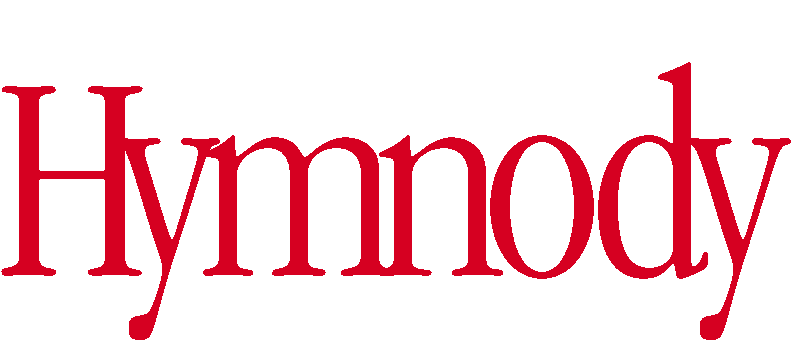|
Composer Alfred V. Fedak
Released 6/09
Catalog no. 125-017
(spiral-bound, 52 pp.)
Price $17.95 (U.S.) |
Order now!


Order PDF download!


 Excerpt Excerpt
|
Introduction from the Composer
Hymn tunes are a unique and fascinating musical form. For as music intended to be performed mostly by unrehearsed non-musicians at primarily non-musical events (i.e., worship services), hymn tunes require special attention and care in their composition. Hymn tunes need to be crafted in such a way that untrained singers, even at first encounter, feel drawn from note to note naturally, comfortably, and inevitably. At the same time, a hymn tune must never sound trite or childish. Its musical content must be sufficiently substantial to withstand repetition across multiple stanzas, and should, in an artful way, embody compositional techniques and features found in larger musical forms, albeit on a microscopic scale. The brevity of hymn tunes means that their every note, harmony, and rhythm must be carefully considered. In this most miniature of musical forms, there is no room for padding, and a single misplaced pitch or rhythm, or mis-voiced chord, can render ineffective even an otherwise perfectly serviceable tune.
But perhaps most importantly, a good hymn tune should match, in form, meter, rhythm, spirit, and inflection, the poetry with which it is paired. A good hymn tune elucidates, amplifies, and to some extent, interprets the words with which it is paired. This fact imposes important responsibilities upon the composer, since, paradoxically, it is the composer, and not the poet, who puts words into people’s mouths. First, the composer has a responsibility to select and set only the best texts which he or she finds congenial: this involves seeking out poetry which has literary merit and an inherent lyricism, and which is both scripturally and theologically sound. Secondly, the composer’s main concern must be to let these words speak for themselves. The mark of a successful hymn tune is the extent to which it projects the meaning and message of its text-mate, without calling attention to itself in the process.
I am most grateful for the work of all the fine poets whose words appear in this, my third collection of hymn tunes, and earnestly hope that I have indeed succeeded in permitting their words to speak through my music. I am indebted, of course, to David and Virginia Schaap of Selah Publishing Co., publishers of all my hymntunes since 1990, for the release of this volume, and to Carl Daw, one of whose hymns gave this little book its title. Finally, as always, I am most indebted to my wife Susan for her constant encouragement and love.
Soli Deo Gloria
–Alfred V. Fedak
Eastertide, 2009, Albany, N.Y.
|
|

Review
"This volume is Alfred V. Fedak's third published hymn collection, presenting 26 tunes mostly written since Sing to the Lord No Threadbare Song (2001) and The Alfred V. Fedak Hymnary (1990). With this book, Fedak confirms the opinion this reviewer had formed from his previous two collections: that he is the finest composer of hymn tunes working today. (We are fortunate to be living in a time in which there are many talented creators of new music and texts in the hymn genre, and recognizing Fedak's achievement in no way diminishes the excellent work of other composers.) Composing a successful hymn tune requires a deceptively difficult-to-achieve mix of accessibility and creativity. The harmonic limits of the genre put an unusual burden on the contemporary composer to employ a basically traditional language while still attempting to say something that is not simply a paraphrase of earlier tunes. Of the more than 100 living hymn tune composers whose work is known to me, I can think of no other composer who so consistently manages (with truly impeccable musical craftsmanship and technique) to create tunes that are immediately accessible and useful to all congregations, yet are so freshly creative and expressive.
It is difficult to single out favorites within such a strong volume, but some especially memorable offerings include the thrilling ANCIENT BEAUTY ('O beauty ever ancient,' Shirley Erena Murray) -- one of the finest tunes Fedak has written, the stirring BON ('Our song is now resounding,' John Core), the soaring HERNDON ('God of the future, Carl P. Daw, Jr., FHS), the Genevan-style carol HILL COUNTRY ('Fields of stars above them,' Gracia Grindal), the delightfully updated Arthur Sullivanesque NELSON ('O bless the Lord,' James Montgomery), and the surprisingly (yet inevitably) modulating NISKAYUNA ('Praise is due to God in Zion,' James Hart Brumm). As this list shows, Fedak chooses texts by a variety of authors; fourteen poets are represented in this volume (seven texts of Daw, three of Core, and two or fewer by the other authors).
Several unmarked homages appear in the volume. Besides the Sullivan one mentioned above, the opening phrase of the tune WESTMINSTER CHURCH is an exact quotation of the opening phrase of the 'Sanctus' from Richard Proulx's ubiquitous Community Mass. This collection also contains Fedak's only published 'experimental' tune, GOLGOTHA ('How shallow former shadows seem,' Daw), which sets the dramatic text with an unusual level of dissonance.
Despite several small typos (a missing word and several misplaced rests), Selah has produced a volume that lives up to their high standards for typography and musical clarity. Indices are provided for meters, poets, tune names, and first lines. I am convinced more than ever that there will come a time (before too long) where every published hymnal will contain something by Fedak. This volume should join the previous two collections on the bookshelf of anyone who cares deeply about the art of hymnody." --The Hymn, Winter 2010
Description
The newest hymn tunes from Al Fedak, written since his collection Sing to the Lord No Threadbare Song was published in 2001. Fedak chooses great texts, and his tunes enliven those texts and transform them into a more meaningful whole.
Tunes included
Ancient Beauty
Austin Seminary
Benison
Bon
Channels of Grace
Creation’s Lover
Day of Ashes
De Profundis
Golgotha
Herndon
Hill Country
Kyrios
Life’s Refrain
|
Many Gifts
Nelson
Niskayuna
O’Meara
Parable
Pateman
Quiet Grace
Royal Guests
Streams of Praise
War Memorial
Westminster Church
Wheatfields
Wisdom |
Texts included
Brumm, James Hart (b. 1962)
Praise Is Due to God in Zion
Core, John (b. 1951)
Many Are the Gifts
Our Song Is Now Resounding
The Song Is Faith
Daw, Carl P., Jr. (b. 1944)
Beyond the Depths
Called to Gather As God’s People
Ever-Flowing Streams
God of the Future
How Shallow Former Shadows
Like the Stars That Hymned
Mixed Like Weeds
Green, Fred Pratt (1903–2000)
God of the Nations
Grindal, Gracia (b. 1943)
Fields of Stars Above Them
Montgomery, James (1771–1854)
O Bless the Lord
Their Books Could Not Divine
Leach, Richard (b. 1953)
A Fruitless Fig Tree
Here Is What Peter
Murray, Shirley Erena (b. 1931)
God Bless the Day
O Beauty Ever Ancient
Robb, David A. (b. 1932)
All Praise to You
May Peace Abide in Us
Thornburg, John (b. 1954)
What Song Can We Sing?
Troeger, Thomas H. (b. 1945)
All Things of Dust
Vajda, Jaroslav J. (1919–2008)
As Once in Eden
Spirit, God, Eternal Word
Whitney, Rae E. (b. 1927)
God of Contradictions
Wren, Brian (b. 1936)
We Offer Christ
|






























